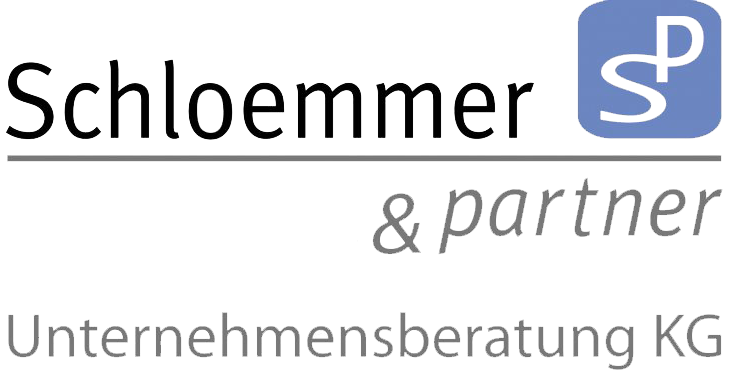NewWork was an academic discussion for a long time. Only a few companies in selected industries have ventured down the path towards agile leadership and decentralized work. Victor Hugo said that nothing is as powerful as an idea whose time has come. This seems to apply to NewWork. The Covid-19 pandemic has forced companies to implement aspects of NewWork. Experience from the crisis mode showed the effectiveness of parts of the concept.
New Work is currently on everyone’s lips – although experts have been discussing it for some time, it has now become a reality under the pressure of the coronavirus pandemic. But what is the groundbreaking “new” thing about our working world? What new skills have been added to a manager’s toolbox and what skills should managers have in the future?
The fundamental challenge for managers has not changed and still applies: They should be able to manage emerging areas of tension in an organization-smart way. This is about evaluating new framework conditions and adapting your own behavior. In our competence management we call this competence ambiguity tolerance: (Does not perceive matters that are in limbo as a burden. Can work on several tasks at the same time. Is always looking for new solutions and abandons established routines. Likes to take risks and loves change. Gets bored with routine administrative processes and constantly needs challenges. Can live well with ambiguity, complex conditions and cultural differences. ©)
How well they succeed in this will determine how well their organizations will be received in the Next Normal – but also what this Next Normal can look like in concrete terms. I can’t see any patent remedies at the moment; they are nowhere in sight. Perhaps it doesn’t need to be. I suggest a different approach – it depends on what questions we ask as management consultants.
How will we make decisions in the future?
Making decisions is part of everyday management. In NewWork, there is a tension between decentralized units and centralized control. Where are decisions made – both locally and organizationally? Centralization offers a better overview and makes it possible to discover potential on the one hand and useful synergies on the other. Decentralization, on the other hand, provides the potential to make quick decisions locally, similar to the principle of subsidiarity.
Companies generally want to avoid risky decisions. On the other hand, it is more important than ever to make decisions under great uncertainty and thus accept new risks.
How does NewWork affect our organization?
In a decentralized working environment, communication structures are changing. Quick and personal access to managers often strengthens their own role. These changes in power can lead to tensions. But power shifts are not the only source of conflict. In our customer experience, it became clear that the relationships within the organization as a whole need to be questioned. Opportunities also arise here. Having to solve new challenges together could help to put an end to smouldering trench warfare. Skillfully applied, the manager can also strengthen the sense of unity.
On the other hand, latent conflicts often manifest themselves in crisis mode. This should not necessarily be seen in a negative light, as only recognized conflicts can be tackled and resolved by a manager. In this respect, it can be very helpful that NewWork can lead to hidden conflicts becoming open disputes.
How will we work together in the future?
New Work was not created by the pandemic. The new world of work is a reaction to changing social and individual conditions. The generation of young specialists and managers often has different values and new expectations of employers.
This is where the tension arises in NewWork between immensely increased expectations of high positions, e.g. security, and the fact that at the same time the usual management levers are no longer available.
The pandemic prompted companies to consider how their day-to-day work could function remotely. They also asked themselves whether and how the focus on a digital workflow could change organizations. This changing situation created winners and losers in the transition to NewWork. This is because the formation of task forces or the sudden need for IT support has made departments and people in organizations relevant that were not before. On the other hand, analog skills became less important.
The new form of (collaborative) work is often characterized by a high degree of mechanization and automation, cross-departmental, cross-hierarchical and cross-functional teamwork and short decision-making paths.
What does New Work mean for the work infrastructure?
NewWork needs NewWorkspace. However, it is certainly not enough for the company to reduce its office space in order to save costs. The new workspace must be based on how employees and teams can best work together.
Some companies rely on open-plan offices, flexible desk use and social meeting and recreation areas where employees can exchange ideas over table soccer. Unfortunately, the simplest solution is not always the best or does not match the company’s corporate identity.
Ultimately, it’s about designing a workspace that corresponds to the new work processes and provides the framework that allows teams to work creatively and productively. Instead of following ready-made solutions, companies should analyze the following factors:
- How much time do team members spend working together on team tasks?
- How often and to what extent is individual, undisturbed and concentrated work required?
- Which technical processes and tools need to be integrated?
- How can remote employees be integrated into the workflow?
- Do employees have to or can they also communicate with colleagues, external service providers or customers without being disturbed?
Companies often decide to relocate teams, departments or even the entire company to a new location. New premises not only offer new infrastructure, but also enable the development of a new mindset. The spatial change can thus lead to a new team spirit.
What does sustainability and a sense of purpose mean for our company?
A society’s corset of values is subject to change. Social and ecological aspects are just as important as reputation and prestige. The company as a microcosm should reflect the changes in society and integrate them into its corporate values.
These changes require innovations and new business models. In economically difficult times, companies are often reluctant to invest or make fundamental changes. Others are experiencing an innovative boom, in which new collaborations and business ideas are emerging. This atmosphere attracts enthusiastic and motivated employees.




























































